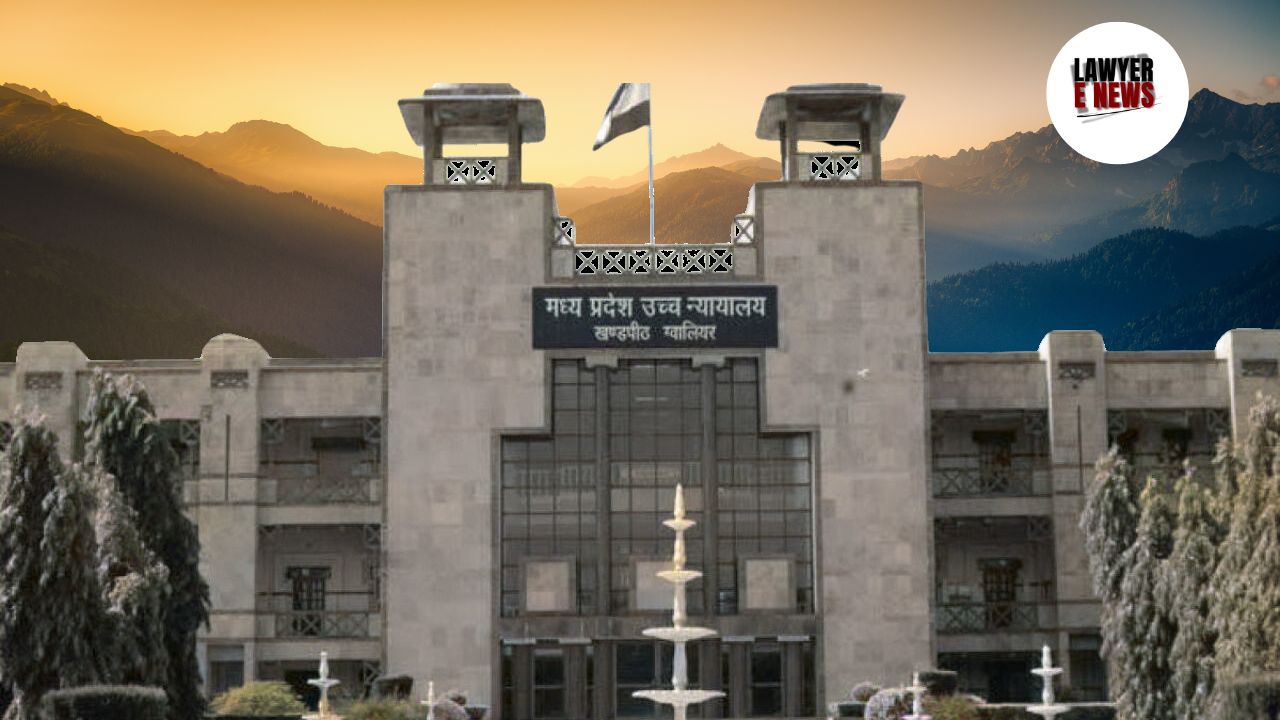-
by Admin
15 February 2026 5:35 AM



Justice Ahluwalia emphasizes judicial limits, reinforcing legislative boundaries in Gyan Singh Parmar’s petition. In a recent judgment, the High Court of Madhya Pradesh dismissed a writ petition seeking condonation of delay in an employee insurance case, reinforcing the principle that judicial bodies cannot legislate from the bench. The court, led by Justice Gurpal Singh Ahluwalia, upheld the decision of the Employee State Insurance Corporation's appellate authority, which had rejected the petitioner's request for condonation of delay due to lack of jurisdiction.
Gyan Singh Parmar, a self-employed individual from Chhatarpur, Madhya Pradesh, faced significant financial liabilities under the Employees State Insurance Act. On November 21, 2022, the authorities assessed his liability at Rs. 7,95,218 for default contributions. Subsequently, an order dated April 26, 2023, increased the recovery amount to Rs. 10,79,087, leading to the seizure of Parmar's bank account. In response, Parmar filed a writ petition (No. 25435/2023), which was disposed of with a directive for the appellate authority to consider his appeal sympathetically and decide on the application for condonation of delay. However, the appellate authority rejected his application, citing lack of jurisdiction to condone the delay, prompting the current writ petition.
The core issue was whether the appellate authority under the Employees State Insurance Act could condone the delay in absence of explicit statutory provisions. Justice Ahluwalia highlighted that Section 29(2) of the Limitation Act applies exclusively to courts, not quasi-judicial authorities or tribunals. "From plain reading of Section 29(2) of Limitation Act, it is clear that it is applicable to Suit, Appeal or application to be filed before the Courts only and not before the Authorities or Tribunal," the court noted.
The judgment drew heavily on precedents, particularly the Supreme Court's stance in M.P. Steel Corporation v. Commissioner of Central Excise and V.K. Naswa v. Union of India. These cases establish that the Limitation Act’s provisions, including those for condonation of delay, do not extend to quasi-judicial bodies unless explicitly stated. "It is well established principle of law that Constitutional Court cannot legislate," Justice Ahluwalia emphasized, echoing the Supreme Court's ruling in Sangeeta Singh v. Union of India.
The High Court underscored the limitations of judicial power in modifying statutory timelines. It reiterated that legislative gaps cannot be filled through judicial orders. This principle was supported by multiple Supreme Court judgments, which caution against courts assuming legislative functions. "While interpreting a provision the court only interprets the law and cannot legislate it," the judgment quoted from the Supreme Court's decision in Sangeeta Singh v. Union of India.
Justice Ahluwalia remarked, "This Court, by passing a Judicial Order cannot give the power to the Appellate Authority to condone the delay. It is well established principle of law that Constitutional Court cannot legislate and if the Court directs the Appellate Authority to consider the application for condonation of delay even in absence of any provision of law, then it would amount to legislation, which cannot be done".
The High Court's decision in this case reinforces the separation of powers doctrine, emphasizing that judicial bodies cannot overstep their mandate by assuming legislative functions. The ruling is expected to have significant implications for similar cases, underscoring the judiciary's adherence to statutory limitations and procedural rigor. By affirming the appellate authority's decision, the court has clarified the boundaries of judicial intervention in administrative matters.
Date of Decision: May 1, 2024
